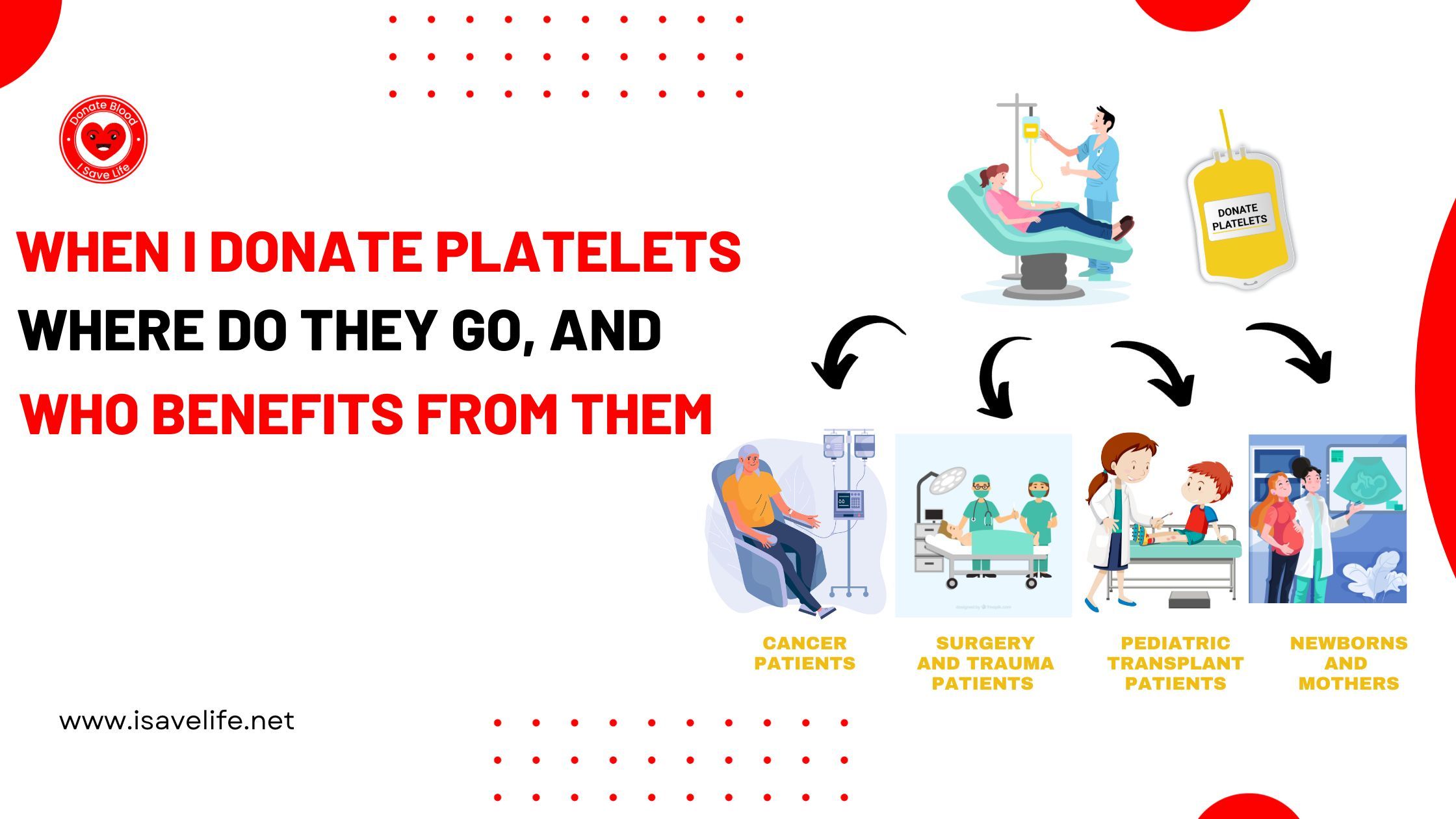
When I donate platelets, where do they go, and who benefits from them
22-Sep-2023
When I donate platelets, where do they go, and who benefits from them
Platelets are tiny cells in your blood that help it clot and stop bleeding, but have you ever wondered where your donated platelets go and who benefits from this selfless act?
In this informative blog, we'll follow the journey of donated platelets and discover the significant impact they have on patients in various medical scenarios.
The Donation Process:
The process of platelet donation is relatively simple and safe. It typically involves drawing blood from the donor, separating the platelets, and returning the remaining components back into the donor's bloodstream. Platelet donations can be done manually or through an automated process known as apheresis.
When you give platelets, they go on an important journey to help people:
1. Processing: After donation, your blood is processed to separate the platelets from other blood components like red blood cells and plasma.
2. Testing: The separated platelets undergo rigorous testing to ensure they meet safety standards. This includes screening for infectious diseases to prevent any risk to recipients.
3. Storage: Platelets have a relatively short shelf life, typically around 5 days. Therefore, they are stored in a temperature-controlled environment to maintain their effectiveness.
4. Distribution: Donated platelets are sent to hospitals and medical facilities, where they are readily available for patients in need.
Who Benefits from Donated Platelets?
The beneficiaries of donated platelets are diverse and include individuals facing a wide range of medical challenges:
1. Cancer Patients: Cancer treatments like chemotherapy can lower a patient's platelet count. Donated platelets are vital for those undergoing cancer therapy to prevent life-threatening bleeding.
2. Surgical Patients: Major surgeries often require transfusions of blood components, including platelets, to manage bleeding during and after the procedure.
3. Trauma Victims: Individuals who have experienced severe trauma, such as car accidents or injuries, may need platelet transfusions to address extensive bleeding.
4. Patients with Blood Disorders: Individuals with conditions like leukemia or aplastic anemia may have reduced platelet production and rely on platelet donations.
5. Organ Transplant Recipients: Organ transplant patients often require platelet transfusions to support their healing process and prevent bleeding complications.
Conclusion